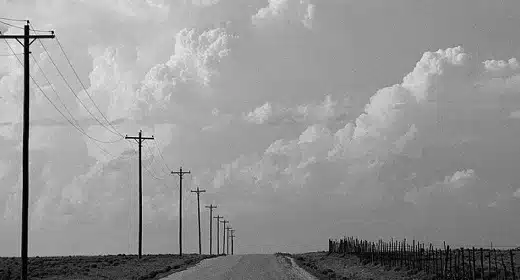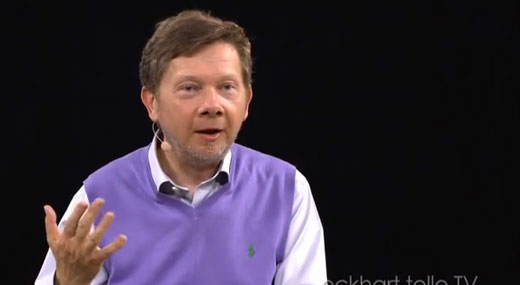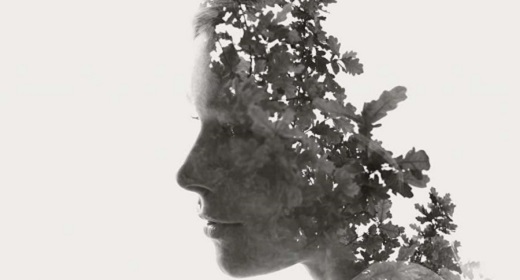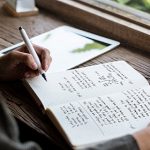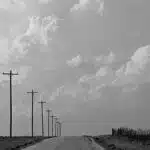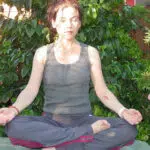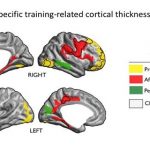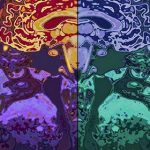by Anne Bancroft: Now that I am ninety-two, I find it interesting to observe how my brain is working. There are changes.
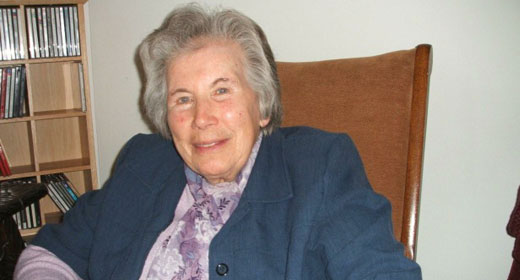
The main one is a tendency to go back in time and feel a lot of remorse for the silly and harmful things I once did. To be racked with guilt for something I did sixty years ago is obviously pointless and I’ve been looking around for a way to tell my brain to let it go in a way that will really work and bring me into the present again.
I came across one that is surprisingly good although at first it struck me as bizarre. It was taught by the sixteenth century mystic St. Theresa of Avila to her nuns, when she was instructing them to meditate. “I do not require of you,” she said, “to form great and curious considerations in your understanding. I require of you no more than to look.”
Just to look – that seemed absurd. We all look, all the time, and we certainly aren’t meditating all the time. I couldn’t see any value in this and was inclined to dismiss it, but it would not be dismissed. It kept coming back to me time after time – “! require of you no more than to look.”
One day it suddenly struck me that perhaps the word ‘look’ meant something quite different from my interpretation of it. Immediately it felt as though I had stumbled on a clue. I started to spend time looking and as I did so I realized that often, when I see something, I never make real contact with it because I instantly put a name to it. There’s no getting away from this habit because it’s how we survive and has been bred into us from the first day of our lives. Language is our most important tool for coping with the world and we would not be human without it.
And yet is there something vital we lose in the process? To name something gives me power over it, it’s an act of possession in which I gain mastery over what I am naming. But I also lose the sense of its otherness, its own unique actuality.
As I thought this, I looked about me at the room I was in and everywhere I looked were objects I knew by their names but never bothered to think about very much. And I could see this meant I was taking everything for granted and never really looking at anything except to judge it in some way – liking it or disliking it according to my feelings. This went on all the time, even when I went shopping or whatever I did. This rather shocked me because I could see that this automatic naming-judging action was making me feel supremely alone in a world of objects, which then had no real being in themselves.
But suppose I turned the process around? Suppose I recognized that the name is not the real thing but a made-up word, a noise when I say it out loud, a convenience that I use to represent something real? What, then, is that reality? I wondered if this was what St. Theresa was after: to get her nuns to look beyond the descriptive word to the mystery of the reality, the mystery of existence in itself.
I was very attracted by the feeling that there must be a limitless beingness, which we sense when we look and listen but which we lose when we tie it down in a word and believe that the word covers all that there is to know. But how to find that beingness? Was meditation what I should do?
I realized that looking itself was the meditation. That was what St. Theresa had said but it needed all this working out for me to understand it.
And yet – still it eluded me. I could see that mind-constructions, such as thoughts and ideas, can be grasped and held on to and that it’s very easy to prefer an idea about a thing to the thing itself in all its mysteriousness. And I could see that it’s easy to forget that the name only symbolizes reality and that an idea is only a pattern of thought. But that mysterious reality that we sense both inside and outside of ourselves all the time and yet which is so hard to reach because of our thinking-in-words process was what I wanted.
I thought of how you learn to ride a bicycle. You know what to do but you can’t do it and then one day, suddenly, you can. And in the same way – not by working it out, but by doing it – I found I could look.
If I put down the “taking for granted” feeling that we usually have about everything, and if I had no expectations of what I was going to look at – simply opening my mind to whatever was there – then everything seemed new and fresh. Even the most humble objects like a table or a chair, suddenly emerged as oddly significant and full of presence. When I did this I felt free and liberated. It seemed that the taking for granted consciousness that we live in all the time is a narrow, stifling way of seeing what is there. It limits us to a world we think we know but in fact don’t know at all.
And now I could look at what I had started with: the problem of intense remorse over past acts. And although I still regretted them I no longer felt tied to them. As I recognized each one I could put it down. In a strange way, this felt like an act of worship towards life itself. As though there is a marvel waiting to be discovered if we can only let go of the conviction that we already know what the world is about and instead, without judgment, just look at what is there.
************
Anne Bancroft, author of many books on Buddhism and Zen, including: Zen, Direct Pointing to Reality, Weavers of Wisdom, and 20th Century Mystics and Sages, lives in England.


